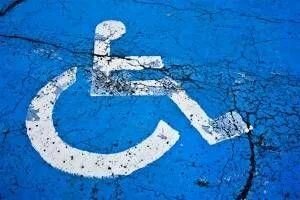 It might seem a bit ironic that the first post on this website is on disability insurance. You are a resident who is starting out in your career, and here I am writing about disability insurance which provides protection in the event you are unable to work.
It might seem a bit ironic that the first post on this website is on disability insurance. You are a resident who is starting out in your career, and here I am writing about disability insurance which provides protection in the event you are unable to work.
First of all, I want to say that I have no vested interest in getting you to buy disability insurance. I don’t benefit financially at all. The decision to purchase disability insurance is ultimately up to you; I just want to tell you a bit about what’s out there and share my experience with you so that you can make the right choice for yourself.
I am sure most of you know what disability insurance is. It gives you money if you get hurt or become sick for several months or more. It basically protects your income in case you get disabled. The amount that you can get depends on your current income (according to my insurance agent, individual insurance companies try to keep the benefit amount to about 60-65% of your annual gross income), and you need a brief physical exam. Sounds great, right? Well, good disability insurance is expensive, and there are details you should look out for should you choose to buy.
Being the cynic that I am, I have to start by saying that insurance companies have a strong interest in convincing you that you need disability insurance. After all they benefit by your buying insurance. So what are the odds that you will get disabled? The bottom line is that there are no physician-specific statistics. However, if you google “physician disability statistics,” you run across some potentially scary statistics about the general likelihood of disability. One PDF file called “What Every Physician Should Know About Disability Insurance” (written by the President of the AMA Insurance Agency) quotes a lot of statistics such as, “in the last 10 minutes, 490 Americans became disabled.” Not only does the statistic not apply to physicians, the statistic comes from the National Safety Council, which describes “disabled” loosely. According to their definition, a person becomes disabled if an injury interferes with normal daily activity one day beyond the day of injury. So let’s say you twist your ankle and can’t go to Pilates next morning; you might be a part of the statistic. In addition, a lot of disability statistics come from the website of the Council for Disability Awareness, which is made up of disability insurance companies with obvious biases. I’m sure there are people out there getting disabled, but I don’t know if I believe some of the statistics out there.
There are no physician-specific disability statistics.
Why do it as a resident?
Most people would agree that if you are a resident, as finances go, you are a bundle of future earning potential as a result of having put in a lot of money, time, and effort. That’s a good thing; you have a lot of potential. But the key word there is “potential.” In financial terms, your have a lot of liability (or debts) but not too many assets. You might want to protect this earning potential until you have built up enough assets.
Also, you are young. By that I mean that your probability of having a pre-existing condition is low. If you have a pre-existing condition, there will be a rider in your policy that will not pay any benefits if you have any disability stemming from that condition. So the earlier you get your disability insurance before you have any medical conditions, the fewer riders you will have. That’s a good thing.
I got my first disability insurance policy towards the end of my CA-3 year. It was for a very little amount – $1,000 – and has cost me about $60/month in graded premium. I could only get that amount because I didn’t make much money as a resident. But the policy had a Future Increase Option (FIO) and many other features that I was looking for in a disability insurance (more on this later).
More on what to look for in disability insurances in the next post.
Open Me for Take-Home Points
Please post a comment and let me know what you think.
















